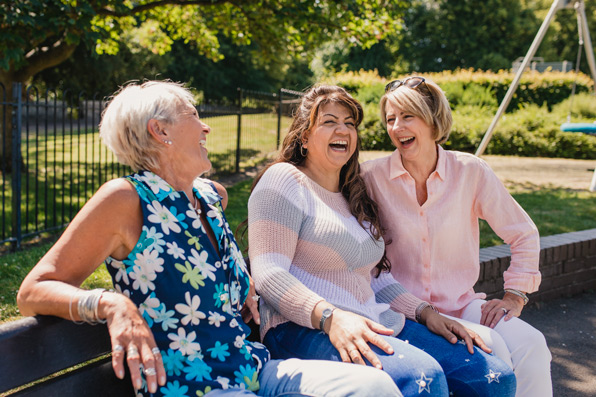Gynaecological appointments are different for everyone; some may be completely comfortable with these often quick and painless appointments, while others may experience mild discomfort, awkwardness or embarrassment. However, attending a pelvic exam or cervical screening after sexual violence may feel quite different.
We understand that this is a sensitive topic, therefore we will avoid triggering language where possible and refer to sexual assault and violence as ‘SA’ and ‘SV’. In this article, we cover some advice on how to become more comfortable when attending a gynaecological appointment. You may be asked to or request to attend this type of appointment for an HPV or other STI screening, investigating abnormal bleeding, fertility screening, pregnancy scans, pregnancy termination or any other gynaecological investigations.
Some appointments involve non-invasive procedures such as pelvic scan, during which only the lower abdomen area needs to be exposed and examined using an ultrasound device. Others, such as a smear test for an HPV screening, are slightly more invasive, and require a closer examination of the genitalia and pelvic organs.
Dr Albert Aka, Consultant Gynaecologist, says: “At The Gynae Centre, our staff have specialist training in order to support all our patients. Our support team is very caring and goes above and beyond to accommodate any requirements to make sure you feel comfortable during appointments of any kind. We have experience with an extensive range of gynaecological conditions in patients of all backgrounds, so please be assured that we can address your needs fully. In addition, our consultations are 100% confidential.”
Take control of your gynaecological health
Booking an appointment
Booking your gynaecological appointment may give you feelings of anxiety or fear, and may resurface past trauma of SA or SV. However, it is the first step in empowering you to take control over your gynaecological health.
Booking an appointment is quick and easy. At The Gynae Centre, we offer an online booking service which means that you won’t have to speak about your request over the phone. If you are unsure which type of appointment you need, you can book a consultation, which will allow you to speak with an expert gynaecologist one-to-one. They will be able to advise you on the best procedure. Some patients find it helpful to book a longer time slot for their appointment to ask further questions or take more time to get comfortable; there does not need to be a reason given when booking a longer appointment.
Getting ready for and attending your appointment
When getting ready for your appointment, wear comfortable clothes that can be slipped off and on easily if an examination is required. If you can, organise time off before and after your appointment to help you mentally prepare and engage in any self-care that you may need.
You do not need to tell your gynaecologist or any member of the care team that you have experienced SA or SV, but if you are comfortable doing so, it can help the clinic provide extra support for you. If you feel that you will be too uncomfortable to answer certain questions, or there is a possibility that you might experience a stress response such as a panic attack or dissociation, you may wish to let your gynaecologist know so that they can help you in case this happens. For some patients, using a signal during any investigations, such as raising a hand, can help let the gynaecologist understand your limits and stop any procedures if it is safe to do so.
When undergoing a gynaecological exam, you can use certain techniques that may help you to feel calmer and more comfortable. These include:
- Breathing exercises – deeply breathing in through your nose for five seconds, and out through your mouth for five seconds
- Visualisations – picture yourself in your favourite place, with a loved one, or doing an activity that you enjoy
- Listen to music or a podcast
- Talk to the gynaecologist about an unrelated subject, such as what you are doing later that day, or what you are currently working on in your job
Receiving your results
When waiting for your results, remember that:
- Many results come back clear
- Most gynaecological conditions are curable or manageable
- There is always support available to you if you need it
Lots of patients find that it is helpful to talk to their gynaecologist about the results. They will be able to put your mind at ease and answer any questions you may have. In some cases, you may need to go for follow-up exams or treatment. If you are worried about this, or anything related to gynaecological health, SA or SV, you may want to find support in a friend or family member, online group, or helpline such as:
- Jo’s Trust – jostrust.org.uk, 0808 802 8000
- Rape Crisis England & Wales – rapecrisis.org.uk, 0808 802 9999
- My Body Back Project – mybodybackproject.com
- National Association for People Abused in Childhood (NAPAC) – napac.org.uk, 0808 801 0331
- Galop – galop.org.uk, 0207 704 2040
- The Survivor’s Trust – thesurvivorstrust.org, 0808 801 0818
- CIS’ters – cisters.org.uk
To book your pelvic exam of cervical screening in a safe, caring environment, call The Gynae Centre on 020 7580 8090, or book online.






